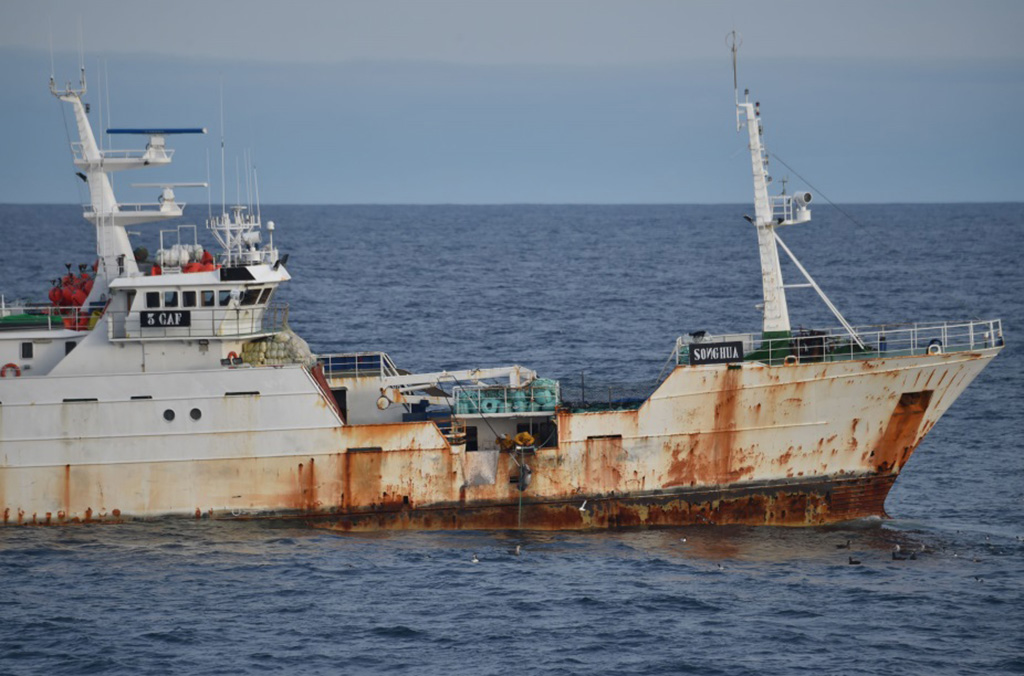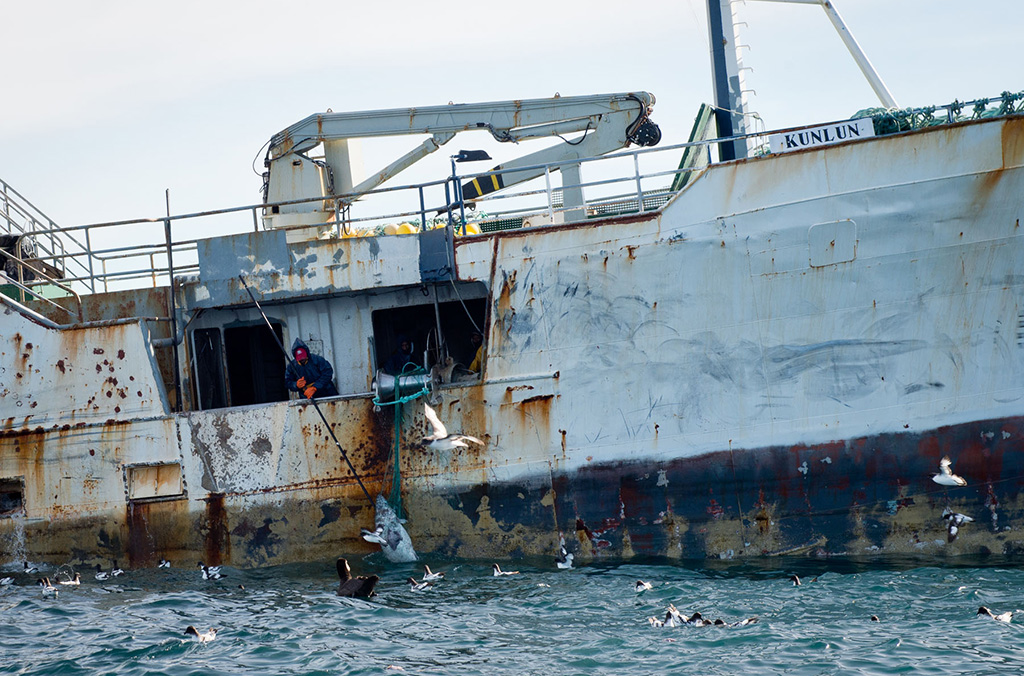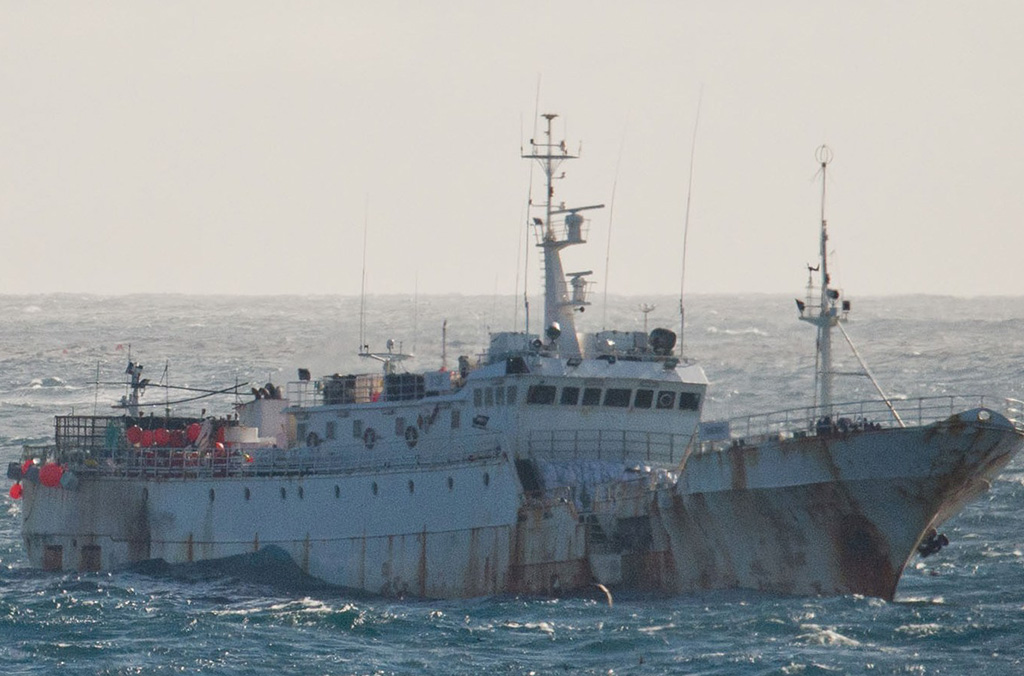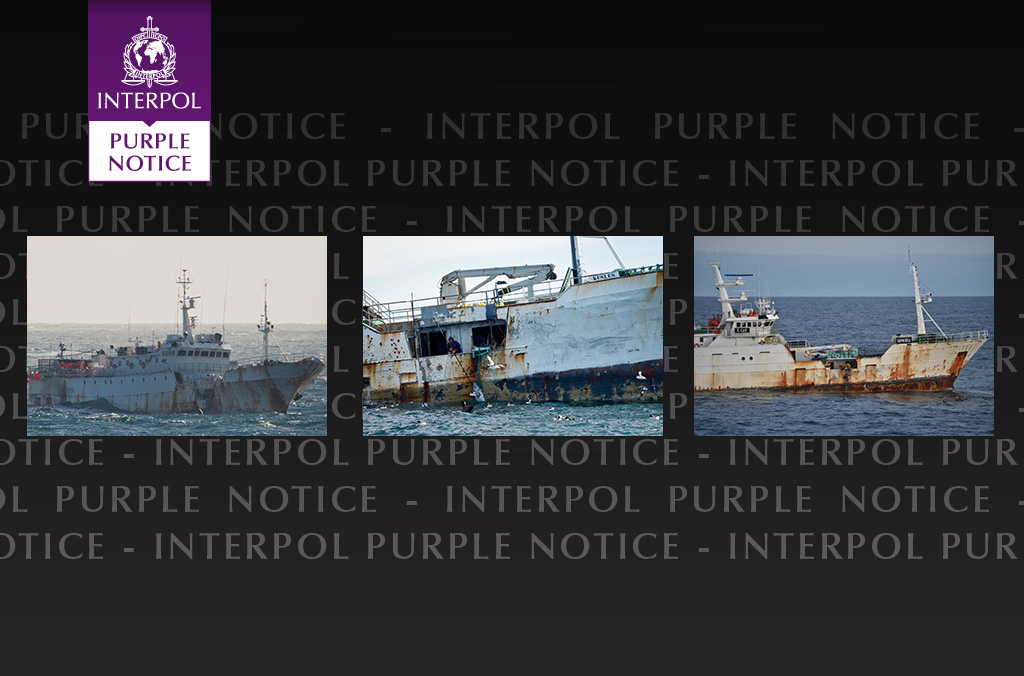RIBEIRA, Spain – An investigation by Spanish authorities into a network of companies and individuals linked to a fleet of illegal fishing vessels active in the Antarctic has resulted in six arrests and a further 13 people placed under investigation.
The operators are accused of environmental crimes, money laundering, falsification of documents and organized crime linked to three vessels, the Kunlun, the Songhua and the Yongding which are estimated to have generated some EUR 10 million per year in illicit proceeds.
In January 2015 the three ships were spotted hauling gill nets laden with Patagonian toothfish, also known as Chilean sea bass, in an area regulated by the Convention on the Conservation of Antarctic Marine Living Resources (CCAMLR) where such fishing methods are prohibited.
At the request of New Zealand, INTERPOL issued Purple Notices for all three vessels in order to gather more information on the individuals and networks behind their illicit activities.
In March 2015 the UCOMA unit of the Environmental Protection Service (SEPRONA) of the Spanish Guardia Civil launched an unprecedented operation to target the networks behind the illegal fishing.
With coordination via INTERPOL’s Environmental Security unit, some 15 countries worldwide also initiated investigations, conducted operations or contributed intelligence concerning the fisheries related criminal activities of the three vessels and their operating network.
In February this year, an INTERPOL Incident Support Team, including officers from the Guardia Civil was deployed to Senegal to conduct a search of the Kunlun which enabled officers to establish direct links between the vessel, the shell company registered as the owner and individuals in Spain.
The team was then also able to track the 180 tonnes of illegal fish which was shipped to Vietnam via Singapore, and in coordination with all three countries, to coordinate the collection of DNA samples and transfer of evidence to Spain.
“This year-long complex investigation required support and input from a wide range of agencies across a range of capabilities at both the national and international levels to help get to the roots of this large criminal network,” said Head of SEPRONA, Brigadier General Vicente Pérez Pérez.
“INTERPOL’s role in coordinating the global exchange of data and intelligence was crucial to the operation’s success,” added Brigadier Pérez.
Following the arrests in Spain earlier this month, assistance was also provided by the Environmental Security unit and the Digital Forensic Lab at the INTERPOL Global Complex for Innovation to extract and analyse data from seized electronic devices as part of the evidence-gathering activities.
“This successful operation led by Spain and involving multiple countries supported by INTERPOL clearly shows what can be achieved through international cooperation, and will hopefully provide a blueprint for other investigations in the future,” said David Higgins, Head of INTERPOL’s Environmental Security unit.
“It also sends a strong message that the global law enforcement community will take action against environmental criminals even, and especially, when these crimes are committed on the other side of the world,” added Mr Higgins.
The three Illegal, Unregulated and Unreported (IUU) vessels had all changed their names, national registration and other identifying characteristics on multiple occasions to try and avoid detection.
One of the vessels, the Songhua, had been on the CCAMLR non-contracting party IUU vessel list following an investigation in 2008 and had used at least eight names under six flags. The Yongding had operated under at least 11 different names and nine flags since 2001, and the Kunlun was spotted using at least 10 different names and five flags since 2006.
*This release was updated to show the country of transit was Malaysia, not Singapore as originally stated.







